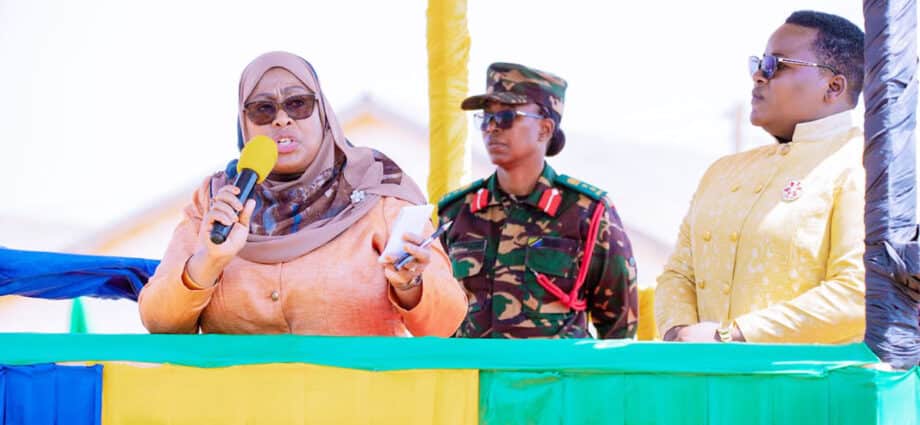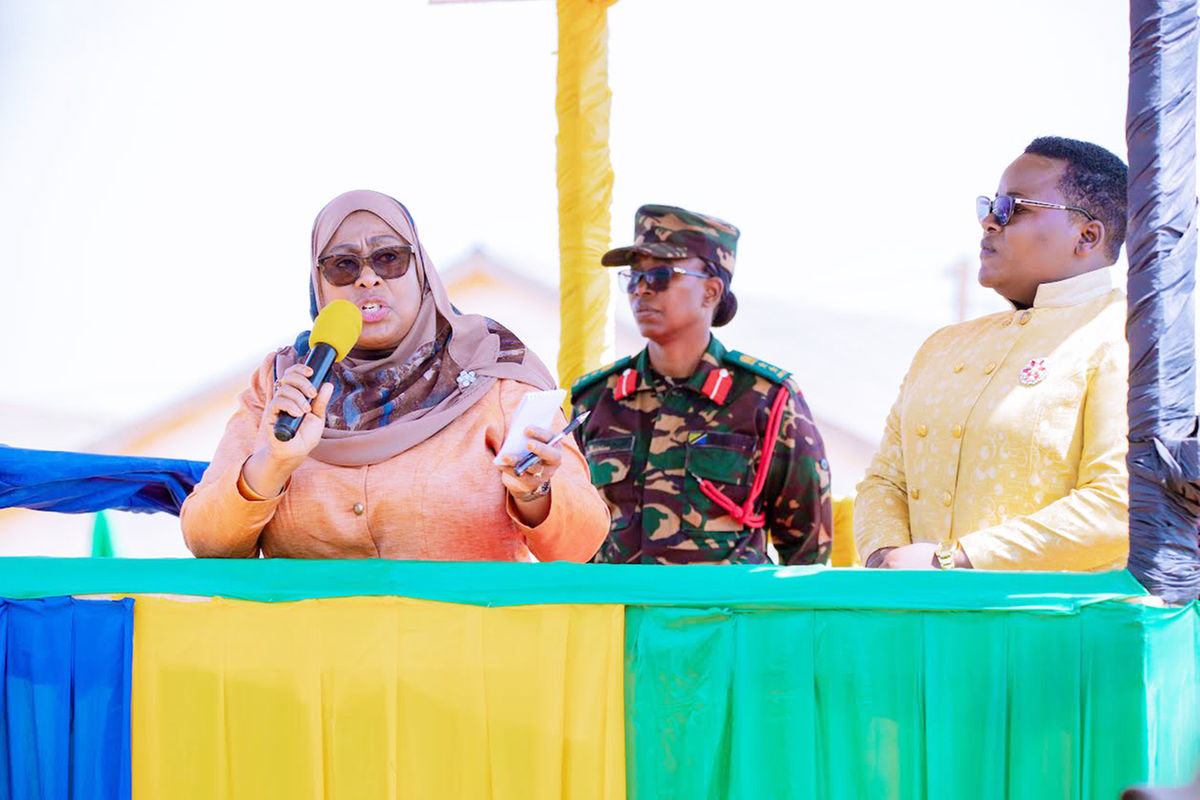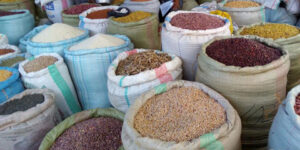Dar es Salaam. The Tunduma-Nakonde border is increasingly emerging as the driver for cross-border trade between Tanzania, Zambia, and the Democratic Republic of the Congo (DRC), with data showing a steady rise in both volume and value during the past nine months.
This emerged yesterday when President Samia Suluhu Hassan visited the area during her ongoing working visit to the Songwe Region.
The new and promising data come nine months after Tanzania and Zambia agreed to address eight out of 24 trade challenges and put up plans to resolve the remaining 16 by December 31, 2023, to effectively facilitate trade between the two countries, including reducing truck congestion at the Tunduma border.
Speaking yesterday, Transport Deputy minister David Kihenzile said during the visit that the two leaders agreed to address challenges facing the border, which recorded an average of 124,000 lorries that crossed the border annually.
He said business transformation spearheaded by the sixth phase of government has increased the number of lorries crossing the border to 261,000.
“The volume of cargo passing the border annually has increased from three million metric tonnes to 6.2 million metric tonnes. Also, the increase includes revenue collection from Sh76 billion to Sh159 billion,” he said during the live broadcast event.
Mr Kihenzile said the volume of cargo between Tanzania and Zambia increased from 1.1 million metric tonnes to 2.2 million metric tonnes after the revitalisation of the Dar es Salaam Port.
Also, he said the volume of cargo transported to the Democratic Republic of the Congo (DRC) increased from 1.9 million metric tonnes to four million metric tonnes.
The deputy minister said Tanzania and Zambia have been collectively working to improve the business climate in the area, including the provision of scanners on the Zambian side.
“A scanner installed on the Tanzanian side is working properly, unlike on the Zambian side. You (President Hassan) have approved over Sh11 billion for the scanner procurement. We are now in the last stages of installing the equipment to smooth business operations,” he said.
“We also had the challenge of system interconnection between the Zambia Revenue Authority (ZRA) and the Tanzania Revenue Authority (TRA). The two sides are discussing the issue with the deliberations expected to be concluded soon,” he added.
He said the construction of the Inland Container Depot (ICD) in the area will address the challenge of trucks parking on the road reserves, leading to and significantly eliminating congestion in the area.
Industry and Trade minister Selemani Jafo said four non-tariff barriers (NTBs) have been worked out, noting that 11 others were at different levels of addressing.
“I should assure you, honourable President, that all these challenges will be addressed for the broader interest of the nation,” he said. Dr Jafo added:
“We had huge challenges on the Zambian side, where scanners remained a challenge. Your government has played an important role in enabling our Zambian counterparts to get the equipment for the smooth transportation of goods between the two countries.”
He said the challenge related to oil tankers would be addressed soon after the Zambian executives travelled to Dar es Salaam for the duplication of the Tanzanian system after being satisfied with its efficiency through the Weight and Measure Agency (WMA).
During the event, President Samia Suluhu Hassan urged Tanzanians to uphold unity, especially at this time when Tanzania is embracing the reconciliation philosophy, noting that the United Republic of Tanzania would remain one globally.
Regarding taxation, she pleaded with Tanzanians to pay taxes and levies to enable the government to increase its revenue collections to enhance its capabilities in the execution of development projects.
She said the government was working on addressing tax-related challenges adversely affecting business prosperity, therefore hindering revenue collections.
Special Seats MP Stella Ifyao said taxation challenges have been adversely affecting traders in Tunduma, Songwe Region, intensifying tax evasion, noting that some businessmen have opted to operate in neighbouring countries.
“Most shops that have been closed in Tunduma belong to Tanzanians. Honourable President, address these taxation issues to enable residents of this area to significantly contribute to building their town,” she said.















